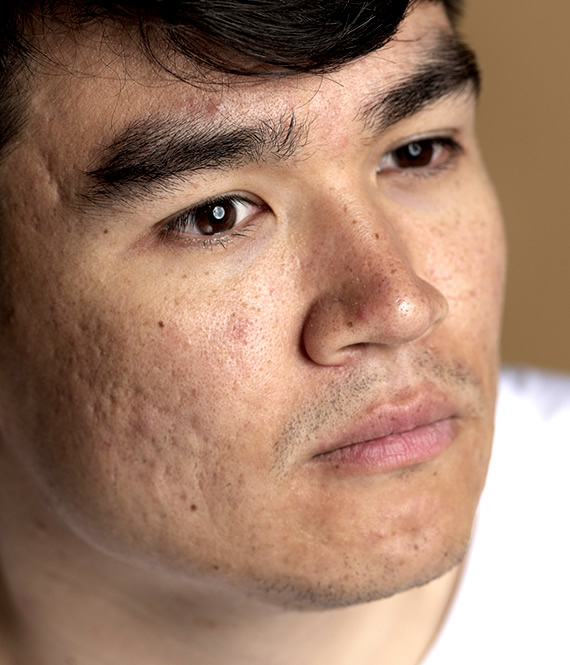
Common Breathing Problems at Night and How to Prevent Them
We recommend helpful products in our articles. Read our full disclosure here. The content on this website is not intended to be a substitute for professional advice, diagnosis, or treatment.
Do you experience shortness of breath or other breathing problems while lying down or sleeping?
Shortness of breath is not always an indication of breathing problems.
However, if the problem persists and often occurs while resting in certain positions, you should see a doctor as soon as possible.
Of course, many things can cause shortness of breath, including medical conditions, allergies, and lifestyle factors. Using the right devices and getting help from healthcare professionals can make your life easier and nights better.
What Causes Shortness of Breath?
Many factors can cause shortness of breath.
If you have been experiencing shortness of breath for several weeks, even without engaging in strenuous physical activities, you might be suffering from chronic shortness of breath.
Shortness of breath occurs when there is insufficient oxygen in the blood.
It can be caused by several factors, such as the lungs failing to efficiently store and process oxygen or the heart failing to pump blood properly.
Common Breathing Problems at Night
Below are common conditions that can cause shortness of breath.
Asthma
Asthma is a common condition that occurs due to lung inflammation.
People with asthma experience breathing difficulties, which can become more severe when sleeping.
Here is why patients with asthma may experience shortness of breath:
- Lying down in certain positions increases pressure on the diaphragm;
- Mucus accumulation on the throat causes coughs and breathing difficulties;
- Other conditions like Gastroesophageal Reflux Disease (GERD).
To reduce asthma attacks and symptoms, patients with asthma should avoid smoking and contact with allergens.
Sleep Apnea
Sleep apnea is one of the most common conditions known for causing shortness of breath.
People with sleep apnea experience shortness of breath due to having narrow airways.
One of the most common treatments for both obstructive and central sleep apnea is using continuous positive airway pressure (CPAP) therapy.
The CPAP machine supplies air under constant pressure through tubes to the mask you put on while you sleep.
If you decided to get CPAP equipment and are looking for a CPAP machine for sale, consider getting the Resmed Airsense 11 CPAP Machine. It is one of the most effective CPAP machines that uses digital technology and has an integrated humidifier.
Exercising and weight loss programs can also help with sleep apnea, as some blocked airways can open up after weight loss.
Pulmonary Embolism
This condition is caused by a blood clot in the lungs.
Besides shortness of breath, patients with the disorder may also experience swelling, chest pains, and prolonged coughing.
Bedridden people and those with families with a history of blood clotting are at more risk of getting Pulmonary Embolism than those who don’t.
Obesity and being inactive can also increase the chances of getting Pulmonary Embolism due to restrictions in blood flow.
It’s important to get tested for the disease if blood clotting disorders run in your family.
Exercising can also lower the risk of getting the condition.
Chronic Obstructive Pulmonary Disease (COPD)
COPD causes airways to block or become narrow, making it difficult to breathe.
Other symptoms associated with COPD include coughing, wheezing, increased mucus production, and tightness in the chest cavity.
Exposure to harmful chemicals and smoking can lead to COPD.
To prevent COPD, you should avoid smoking and wear the proper protective equipment when handling toxic chemicals.
Pneumonia
Pneumonia is a lung-related condition caused by bacteria, fungi, and viruses.
It causes lung inflammation and is categorized by flu-like symptoms, coughing, chest pains, and tiredness.
Getting vaccinated against pneumonia and not interacting with those infected can reduce the chances and risk of pneumonia.
Heart Conditions
Heart disease can cause shortness of breath since the heart may constantly fail to pump blood efficiently.
Although anyone can get a heart condition, people with high blood pressure, diabetes, smoking, poor diet, and obesity are at a higher risk of having heart-related issues.
Patients with heart failure may get heart attacks resulting in shortness of breath, sweating, nausea, and fatigue.
You can reduce the chances of getting heart disease by exercising regularly and eating a healthy diet.
Allergies
Allergens such as dust, molds, and pets, among other things, can contaminate the air, causing an allergic reaction and resulting in shortness of breath.
If you are allergic to dust and molds, closing your window at night may limit the allergens from outside from contaminating the air.
Conclusion
Many factors can cause shortness of breath at night, and some may be underlying conditions.
If your shortness of breath is accompanied by nausea, fatigue, or chest pain, it’s best to see a doctor to rule out any serious issues.
"We love to research problems, examine studies, analyze solutions, and share with you ideas that make life healthier. You can learn about us and our editorial standards here. Have suggestions or feedback to share? Send us a message!."













Leave a Comment